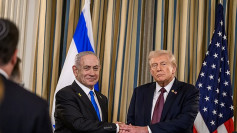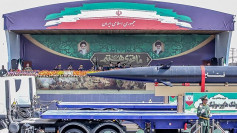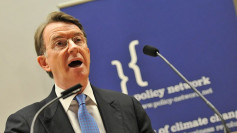Prince Andrew's association with a businessman accused of being a Chinese spy has reignited public and governmental scrutiny over his judgment and potential security risks involving senior British figures. The individual, referred to only as H6, attended events at Buckingham Palace, St. James's Palace, and Windsor Castle at the Duke of York's invitation, raising alarms about political interference by foreign states.
In a statement issued on Friday, Prince Andrew claimed he had "ceased all contact" with H6 when concerns were raised about the businessman. "Nothing of a sensitive nature was ever discussed," the duke's office stated, adding that the relationship had been formed through "official channels." However, questions remain about the extent of H6's access to royal residences and Andrew's alleged trust in the individual.
The accusations against H6 emerged as part of a Special Immigration Appeals Commission (SIAC) case in March 2023, when then-Home Secretary Suella Braverman banned the businessman from entering the UK on national security grounds. H6 subsequently appealed the decision but lost. Officials warned that H6 had been fostering connections between senior Chinese officials and prominent UK figures, which could potentially be leveraged for political interference.
A statement from the Chinese Embassy in London denied the allegations, asserting that "some individuals in the UK are always eager to fabricate baseless 'spy' stories targeting China."
Court documents reveal that H6 had cultivated a level of trust with Prince Andrew described as "unusual." A letter found on H6's electronic devices referred to him as sitting "at the very top of a tree" of individuals close to the duke. Another document suggested that H6 was authorized to act on Prince Andrew's behalf in negotiations with Chinese investors.
The court's ruling noted that H6's relationship with the prince developed during a period when Andrew faced significant personal and public pressure. This vulnerability, officials said, may have made him susceptible to misuse of influence. Andrew stepped back from royal duties in November 2019 following intense criticism over his connections to the late financier and convicted sex offender Jeffrey Epstein.
H6's ties to Prince Andrew are part of a broader concern over China's alleged use of "elite capture" tactics, targeting influential individuals to further its political and economic agendas. Isabel Hilton, an expert on China, described the targeting of a royal as "quite ambitious" and "unwise" on the part of Prince Andrew.
The ruling also highlighted concerns from MI5 director general Ken McCallum, who described China's United Front Work Department (UFWD) as orchestrating "well-funded, deceptive campaigns to buy and exert influence." H6 was believed to be connected to this arm of the Chinese Communist Party.
The revelations come at a sensitive time for the royal family. In recent months, the monarchy has taken steps to distance itself from Prince Andrew, including reports that King Charles III has withdrawn the duke's £1 million annual allowance and discontinued private security funding for his residence.
The latest developments have fueled calls for greater transparency around royal finances and activities. Andrew Lownie, a historian working on a biography of Prince Andrew, argued that the scandal could affect the monarchy's reputation. "Given he cannot police his own activities and understand where the moral boundaries lie, it is time for proper scrutiny of his finances and a public register of royal interests," Lownie said.
Senior Conservative figures, including Suella Braverman, have called for H6's anonymity to be lifted to deter similar activities in the future. However, current Home Secretary Yvette Cooper declined to comment on the case's specifics, citing the government's adherence to court decisions.






